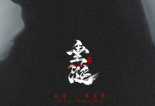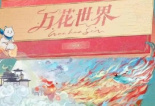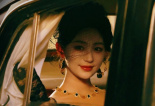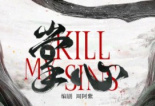《Mr. Lu Xun》 is a documentary that deeply explores Lu Xun's life, thoughts and literary achievements. It is produced and broadcast by CCTV-9 (CCTV Documentary Channel).This documentary is divided into eight episodes, each episode delves into a theme and comprehensively and meticulously depicts Lu Xun's life trajectory and spiritual world.
Hometown Memory: This collection starts from Lu Xun’s hometown of Shaoxing, traces back to his childhood and adolescence, and explores the influence of family and hometown on Lu Xun’s early thoughts and literary creation.Through Lu Xun's preference for owls and his friends' descriptions of him, his character traits and early life environment are revealed.
Wandering on the Crossroads: It tells the story of Lu Xun's youth experiences, including his study experience in Nanjing and Japan, and how he turned from medicine to literature, reflecting his ideological changes and his deep concern for the destiny of the country and the nation.
Thought Storm: An in-depth analysis of Lu Xun's journey to becoming the standard-bearer of the New Culture Movement, his critical spirit and challenge to feudal thought, especially his profound analysis of the old society through works such as "The Scream".
Iron House Scream: focuses on Lu Xun's literary creation, especially the short story collections - Scream - and - Wandering -, and explores how he used the pen as a weapon to awaken the sleeping people in the “Iron House” and express his support for social injustice.Anger and a profound insight into human nature.
The Dark Gate: Reveals Lu Xun's exposure of the dark side of society, and how he criticized reality through literary works, such as - The True Story of Ah Q - and tried to open the floodgates of social progress.
I Can Love: Explore Lu Xun's personal emotional world, including his love with Xu Guangping, as well as his views on family and family relationships, showing his side as an ordinary person.
Shanghai Years: A detailed description of Lu Xun's life in Shanghai in his later years. This period was the peak period of his literary creation. It was also the period when he participated in the left-wing cultural movement and communicated most frequently with young writers.
1936: Finally, this episode focuses on the last year of Lu Xun's life, his health, continued literary creation and social activities, as well as the profound impact of his death on future generations.
The entire documentary vividly demonstrates Lu Xun's multiple identities as a writer, thinker and revolutionary, as well as his important position in the history of modern Chinese culture, through rich historical materials, literary works analysis, expert interviews and scene reenactments.
Hometown memory
In this episode, through Lu Xun’s special love for owls, we get a glimpse of this literary giant’s unique character and aesthetic tendency.
The owl, a bird that flies in the middle of the night, has become an indispensable part of Lu Xun's life.It is not only an animal image in Lu Xun's works, but also a symbol of his unique perspective of observing the world.Lu Xun was like an owl, keeping a clear mind in the darkness, and had a keen insight and profound analysis of social reality.
Through Lu Xun's personal preferences and the descriptions of his friends, we can see a Lu Xun who appeared cold and informal in public, but under this cold appearance, his love for life and in-depth thinking about the world were hidden..His criticism of society, analysis of human nature and desire for a new life are all vividly reflected in his works.
Lu Xun's hometown of Shaoxing and his childhood experiences had a profound impact on his later literary creation and ideological formation.The episode also delves into how Lu Xun's early life circumstances shaped his worldview, and how he gradually transformed from a medical student into a profound social critic and literary giant.
Wandering on the road
Through Lu Xun's works and life, this episode vividly demonstrates his profound criticism of the society at that time and his inner contradictions.
In this episode, we explore in detail Lu Xun’s mental journey after realizing the numbness of the national spirit and the bleak future of the country.His sense of despair stems from his deep concern for the fate of his country and nation, which is deeply reflected in his works.Through works such as "Showing the Public" and "Medicine", we can see Lu Xun's indifference to the people watching executions and his superstitious depiction of %human blood steamed buns. These plots reveal his sharp criticism of the current social situation and hisA profound reflection on national character.
Lu Xun's despair was not entirely negative.On the contrary, it inspired his determination to use the pen as a weapon for spiritual enlightenment.In this episode, we will tell how Lu Xun turned from his medical dream to literary creation, hoping to awaken the people through writing and change the mental outlook of the nation.This transformation of his, and his continued exploration and expression of social criticism in his literary creations, become the focus of this episode.
In addition, the program will also touch on Lu Xun's literary innovation and challenge to traditional constraints.He had the courage to break through the framework of traditional literature, depict social reality with a unique perspective and profound writing style, and became one of the founders of modern Chinese literature.At the same time, his status and influence in the cultural world cannot be ignored. He became a spiritual mentor of that era, leading Chinese youth towards awakening.
Through Lu Xun's personal experience and ideological evolution, the audience can have a deeper understanding of why he is called the "national soul" and how his works become a mirror that reflects and criticizes the old Chinese society.
Thought storm
This episode will provide an in-depth analysis of Lu Xun's unique contributions to literature and thought, and how he became the standard-bearer of the New Culture Movement.
The audience can look forward to seeing how Lu Xun deeply analyzes and criticizes feudal ethics and national character through his works, such as - Scream -, - Wandering - and other short story collections.Lu Xun's exposure of the cannibalistic nature of the old society and his call for individual awakening and new ideas will be the core of this episode.
The program will detail Lu Xun's activities on platforms such as New Youth Magazine, as well as his interactions with Chen Duxiu, Hu Shi and others, how they jointly promoted the development of the New Culture Movement.Lu Xun's care for youth and thinking about education during this period, such as his lectures at Peking University, will also be an important part.
In addition, the third episode touches on Lu Xun's personal life, including his writing habits, love of books, and his wide-ranging interests in art and culture, such as his collection and promotion of prints.Through these contents, a three-dimensional image of Lu Xun is presented, not only as a writer, but also as a thinker and cultural warrior.
How Lu Xun's fighting spirit and insistence on free thought aroused great repercussions in that era, and how he influenced later Chinese literature and intellectual circles will be the climax of this episode.Through in-depth analysis and rich historical materials, the audience will have a more comprehensive understanding of Lu Xun's important role in promoting the process of modern Chinese culture.
Iron House Scream
《Mr. Lu Xun》The fourth episode of "Iron House Scream" deeply explores Mr. Lu Xun's literary ideas and his profound insights into society.The title of this episode comes from Lu Xun's famous metaphor - “Iron House”, which symbolizes the closedness and repression of Chinese society at that time, while “Shout” represents Lu Xun's efforts to awaken the people and break this closed state.
This episode starts with the “Iron House” metaphor in the preface - Scream - and tells about Lu Xun's deep expectations for national awakening and concerns about the national mental state.Through the analysis of works such as "Diary of a Madman" and "Medicine", it is shown how Lu Xun revealed the cannibalistic nature of feudal ethics and the insensitivity of the people through literary works.The perspective of a madman in "Diary of a Madman" reveals the cruelty of society and the distortion of human nature, while "Medicine" criticizes the ignorance and indifference of the people through the symbol of human blood steamed buns.
The conversation between Lu Xun and Qian Xuantong, and the discussion about Iron House, may be particularly emphasized in this episode, reflecting Lu Xun's ambivalence about enlightenment and redemption.He is well aware of the difficulty of awakening the people, but even if the hope is slim, he still chooses to cry out, hoping that through the power of literature, he can awaken at least some people, even if they are facing cruel reality.
Discuss Lu Xun's activities in magazines such as "New Youth" and how he continued to criticize social injustice and old ideas through essays and novels, showing his fighting stance as a thinker and writer.Lu Xun's "cry" is not only a literary act, but also a manifestation of social responsibility. He hopes to inspire social self-examination and reform.
Dark Gate
《Mr. Lu Xun》The fifth episode “Dark Gate” deeply explores Mr. Lu Xun's profound exploration in literature and thought, as well as the burden he bears as an enlightener.The title of this episode, "Dark Gate", comes from Lu Xun's self-description, symbolizing his attempt to open a path to light for future generations, although this path is full of difficulties and challenges.
This episode analyzes in detail the metaphor of "Dark Gate" mentioned in Lu Xun's 1919 article "How We Be Fathers Now", emphasizing his criticism of traditional constraints and his expectation for the free growth of the next generation.Lu Xun believed that as awakened parents and intellectuals, they must shoulder the heavy responsibility of breaking the shackles of tradition and creating a brighter and freer future for their children.
By reviewing Lu Xun's life and works, such as the symbolist prose poems in "Weeds", this collection will show how Lu Xun explored the darkness and light deep in his heart in his personal literary creation, as well as his profound insights into human nature.Images such as the "long snake eating itself" written by Lu Xun reflect his thoughts on the conflict between the individual and society, tradition and modernity, as well as the individual's struggle to seek self-salvation in the darkness.
In addition, the fifth episode will also explore Lu Xun's role in the New Culture Movement and how he became a prominent figure in that era through his writing, such as the short stories in - Scream - and - Wandering - and a large number of essays.The pioneers of thought have worked hard to block the gate of darkness, allowing those who come after us to see the dawn of hope.
i can love
《Mr. Lu Xun》The sixth episode of “I Can Love” focuses on Lu Xun's personal emotional world, especially his love story with Xu Guangping.Through Lu Xun's emotional life, this episode shows his soft side besides being a literary giant, as well as his choices between tradition and modernity, personal emotions and social responsibility.
Beginning with Lu Xun's marriage to his first wife, Zhu An, this marriage reflected Lu Xun's commitment to traditional family responsibilities, even though the relationship lacked an emotional foundation.
Later, the plot will turn to the teacher-student relationship between Lu Xun and Xu Guangping, which was a period of passion and challenge in Lu Xun's life.The appearance of Xu Guangping brought a new color to Lu Xun's life. Their correspondence was later compiled into "Book of Two Places" and became a good story in the history of literature.
Lu Xun's personal emotional awakening and pursuit, especially in the context of that era, the courage to cross the boundary between teachers and students and pursue true love.This episode details how they gradually established a deep relationship through correspondence, and how this relationship developed under the pressure of social opinion and family responsibilities.
Shanghai years
Lu Xun lived and worked in Shanghai from 1927 to 1936, which was an extremely critical decade in his life.During this period, Lu Xun not only reached a peak in literary creation, but also played an important role in ideological struggles and social activities.
Literary Peak: At the beginning of this episode, we will tell how Lu Xun expressed himself more freely in literature after moving to Shanghai, and created a large number of essays, novels and translated works, such as - New Stories -, - Picked Up Morning Blossoms at Dusk -Etc., these works profoundly reflect his criticism of social injustice and profound insight into human nature.
Left-wing Cultural Movement: A detailed introduction to Lu Xun's participation in the left-wing cultural movement, his interactions with Mao Dun, Qu Qiubai and others, and how he became a spiritual mentor for young writers and promoted the development of progressive literature through organizations such as the Chinese Left-wing Writers Alliance.
Debates and Struggles: Shows Lu Xun’s debates with Liang Shiqiu, Chen Yuan (pseudonym Xiying) and others, and how he used his pen as a weapon to fight against various reactionary forces on platforms such as "Declaration·Free Talk",Safeguard freedom of speech.
Woodcut Movement: Special emphasis is placed on Lu Xun's support and promotion of the emerging woodcut art. He not only translated and introduced foreign woodcut works, but also personally trained young woodcut artists, which had a profound impact on the development of modern Chinese printmaking art.
Personal life and health: Mentioning Lu Xun's love life with Xu Guangping, as well as his gradual deterioration in health while in Shanghai, but still persisting in working, showing his perseverance.
The Last Years: Ending with the last moments of Lu Xun's life, describing his persistence in writing despite his serious illness until his death on October 19, 1936, emphasizing his great contribution to modern Chinese literature and thought, as well as his profound influence on later generations..
1936
"The End of Life" focuses on the last year of Lu Xun's life. For Lu Xun, this year was not only a sprint for literary creation, but also a period of rapid deterioration in health.
Health Crisis: The opening chapter shows Lu Xun's declining health, and his struggle with illness becomes an important background to this period.Through excerpts from diaries and memoirs, he describes how he persisted in working despite his illness, which reflects his indomitable spirit.
Literary Creation: Detailed introduction to the important works completed by Lu Xun during this year, such as the final chapter of "The New Story", and how he continued to write on the sick bed, criticizing the current ills through essays, and making a strong voice of the times..
Social Activities and Influence: Shows that during this year, Lu Xun, despite his poor health, still actively participated in social activities, supported young writers, interacted with international friends such as Smedley, and his leadership role in the left-wing cultural movement.
The unfinished love affair with Mr. Fujino: Mentioning Lu Xun's memory of Mr. Fujino and the response caused by the article "Mr. Fujino" in Japan, showing his deep memory of his teacher and his expectations for the friendly relations between China and Japan.
Medical Controversy: An in-depth exploration of Lu Xun's medical situation, especially the relationship with the attending doctor Sudo Five Hundred San, as well as the outside world's doubts about Sudo's treatment of Lu Xun's condition. Although the final diagnosis and treatment process are controversial, Lu Xun is emphasizedTrust in doctors.









